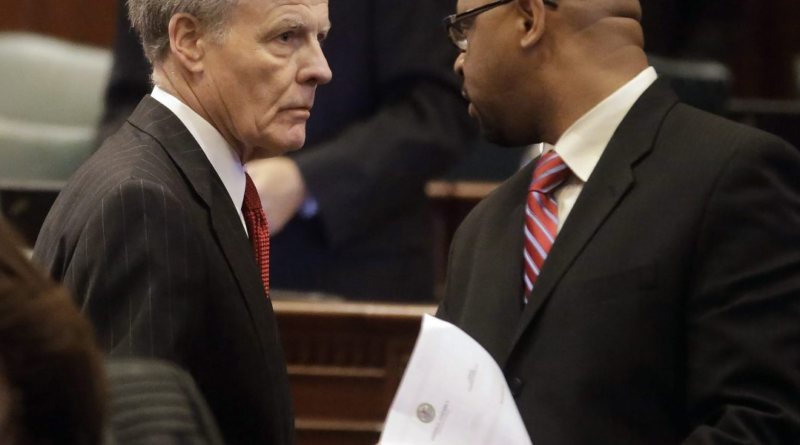A small Illinois city ticketed a local reporter for asking why its infrastructure collapsed and flooded under heavy rainfall
Officials in a suburban Chicago community have issued municipal citations to a local news reporter for what they say were persistent contacts with city officials seeking comment on treacherous fall flooding.
The tickets from Calumet City, a city of 35,000 located 24 miles (39 kilometers) south of Chicago, allege “interference/hampering of city employees” by Hank Sanders, a reporter for the Daily Southtown, the Chicago Tribune reported Friday.
It’s the latest of several recent First Amendment dust-ups involving city officials and news outlets around the country, following this week’s arrest of a small-town Alabama newspaper publisher and reporter after reporting on a grand jury investigation of a school district, and the August police raid of a newspaper and its publisher’s home in Kansas tied to an apparent dispute a restaurant owner had with the paper.
Sanders reported in an Oct. 20 story that consultants told Calumet City administrators the city’s stormwater infrastructure was in poor condition before flooding wrought by record September rains. Officials say Sanders continued to call and email city employees, drawing complaints including from Mayor Thaddeus Jones, who is also a Democratic state representative.
The Tribune, which shares an owner with the Daily Southtown, reported that Sanders was told to channel requests for information through Jones’ spokesperson, Sean Howard, but according to one citation sent 14 emails to the city during a nine-day period in October asking questions about flooding.
Mitch Pugh, executive editor of the Chicago Tribune, said one reason Sanders continued asking questions was for a follow-up flooding story that has yet to be published.
While the citations are not of “the same degree and magnitude” as the other recent incidents, Pugh said, “it seems to be on the same through line of a real lack of understanding of what the First Amendment protects, what a journalist’s job is, what our role is.”
“You get used to it a little bit on the national scale, but now we’re seeing it in very small municipalities with mayors, and that’s a disturbing trend and we need to call it out when we see it,” Pugh told The Associated Press. “A public official ought to know better than to basically use a police force to try to intimidate a reporter who’s just doing his job.”
The news media’s freedom from government meddling or intervention is protected by the First Amendment.
Phone and text messages seeking comment were left for Jones. Howard referred questions to city attorney Patrick Walsh, saying it is a legal matter. A message was also left for Walsh.
Don Craven, president, CEO and general counsel of the Illinois Press Association, criticized the citations and said the media play a fundamental role in the functioning of democracy.
“We’re talking about a reporter who is doing his job,” Craven said, “and instead of saying ‘We’re working on the problem,’ the city’s response is, blame the reporter.”




